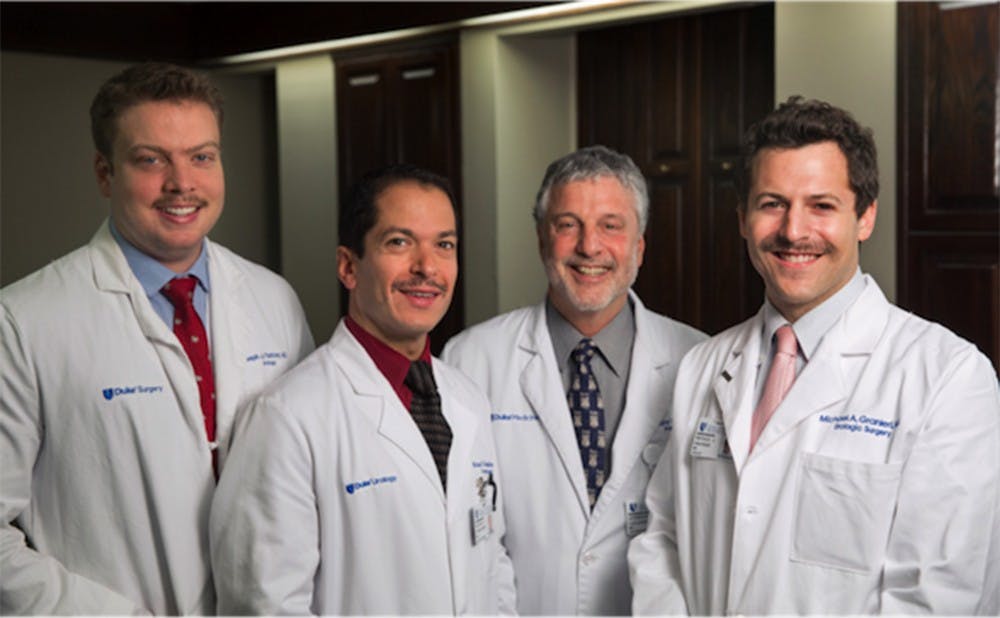The razors of a group of Duke doctors have come out to officially conclude the fundraising of No Shave November.
Teams of doctors from across the medical center have joined the “Movember” movement and given up shaving for the past month. The nationwide movement aims to support research and awareness for prostate cancer, testicular cancer and other men’s health issues. Movember was started in Australia in 2004, and has spread globally since through the Movember Foundation, which raises money and funds research into men’s health issues. More than 200 people across campus have participated in Movember, raising over $11,000. Globally, the Movember movement has raised $25 million over the past month.
“Men are very difficult,” said Dr. Anthony Galanos, Trinity ’75, palliative medicine specialist at Duke Hospital and prostate cancer survivor. “They’re not as receptive to public information as women. I think there’s a perception amongst men more than women that we’re invulnerable and that bad things happen to other people and not us.”
The Movember effort at Duke is spearheaded by doctors in the department of urology and the Duke Cancer Institute. Although doctors from Duke Medicine have participated in the movement since 2012, this is the first year that the event has gained traction across campus.
“The entire Duke community has worked together to raise more,” said Michael Granieri, urology resident at Duke Hospital. “We’ve had people from Durham who’ve contacted us, people from Chapel Hill, alumni who’ve contacted us wanting to help out. It’s pretty cool.”
Student organizations and athletic teams have also joined the effort. Several fraternities along with the Duke wrestling team have members participating in Movember.
Although the Movember movement raises money and awareness for a wide range of men’s health issues, there is a particular focus on prostate and testicular cancers, which are among the most widespread diseases that affect only men. Over 230,000 men are diagnosed with prostate cancer every year, and about 30,000 die each year from the cancer.
“One is a disease of men in their fifties, sixties, and seventies. The other is a disease of younger men, in their twenties and thirties,” Andrew Armstrong, co-program leader of the genitourinary oncology research program, said, noting that testicular cancer is most prevalent among men younger than 35.
Galanos has gone public with his own story of prostate cancer survival as part of the Movember campaign to encourage increased prostate cancer screening and to address the sense of invulnerability that many men have with regards to prostate cancer.
“The hardest part of this story for me, one reason I’ve not gone public until recently, is that I have two children, both of them huge Duke fans,” Galanos said. “How to tell them that I had prostate cancer was hard because they, like most young folks, see their parents as strong, that nothing can happen to them.”
Galanos—who was diagonsed at the age of 55—added that many people are surprised that prostate cancer disproportionately affects African American men and can affect men as early as their fifties, so early screening is important.
Many people have the misconception that prostate cancer only happens to men in their eighties. Galanos said that he hopes his story will encourage other men to get screened.
“There’s power in being a physician and a patient,” he said. “Perhaps because I am an MD, people will listen.”
Get The Chronicle straight to your inbox
Signup for our weekly newsletter. Cancel at any time.

